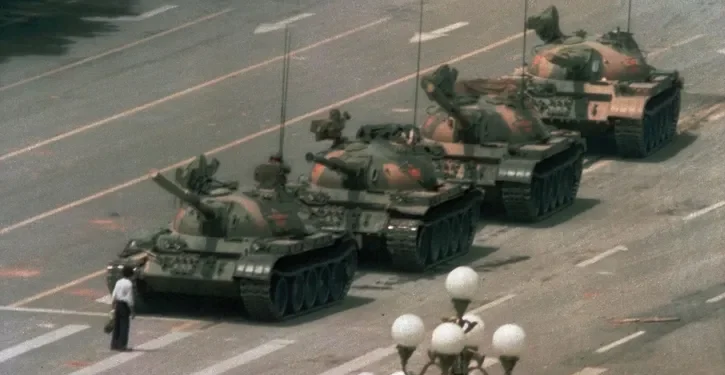The Tiananmen Square Massacre, also known as the June Fourth Incident, represents a watershed moment in the history of modern China, marking the brutal suppression of a pro-democracy movement by the Chinese government. The events of June 3-4, 1989, remain a poignant symbol of the struggle for democratic reform and the lengths to which authoritarian regimes will go to maintain control.
In the spring of 1989, students began gathering in Beijing’s Tiananmen Square to mourn the death of Hu Yaobang, a former Communist Party leader known for his liberalizing policies and support for political reform. What started as a memorial quickly evolved into a broader call for democratic reforms, freedom of speech, and an end to government corruption. The movement rapidly gained momentum, drawing support from various social strata, including intellectuals, workers, and even some government officials.
For weeks, Tiananmen Square became the epicentre of the pro-democracy movement. Protesters established a makeshift encampment and, inspired by the principles of democracy and human rights, engaged in peaceful demonstrations, hunger strikes, and dialogues with government representatives. The Chinese leadership, however, grew increasingly intolerant of the dissent, viewing the movement as a threat to the Communist Party’s supremacy.
As the protests persisted and international attention grew, the Chinese government declared martial law on May 20, 1989. Yet, the demonstrators remained undeterred. Tensions escalated, and on the night of June 3, the Chinese military, under orders from the top leadership, moved to forcibly clear the square.
Armored tanks and heavily armed troops entered Beijing, converging on Tiananmen Square. The military’s advance was met with defiance from the protesters, who built barricades and pleaded for a peaceful resolution. The situation turned violent as the troops opened fire, using live ammunition against the unarmed civilians. Chaos ensued, with widespread reports of casualties and injuries. Estimates of the death toll vary widely, with figures ranging from several hundred to possibly thousands, though the exact number remains unknown due to the Chinese government’s suppression of information.
The immediate aftermath of the crackdown saw mass arrests, a strict media blackout, and an extensive propaganda campaign to justify the government’s actions. International condemnation was swift, with many countries imposing economic sanctions and arms embargoes on China.
The Tiananmen Square Massacre left an indelible mark on China and the world. It highlighted the stark divide between the Chinese people’s aspirations for democratic reform and the government’s resolve to maintain authoritarian control. The event continues to resonate as a symbol of resistance against oppression and the ongoing global struggle for human rights and democracy.
newshub


Recent Comments